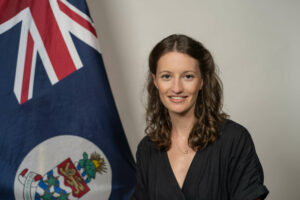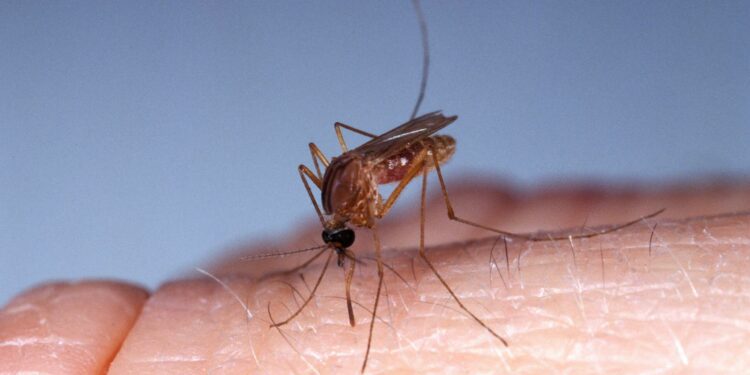Local health and mosquito-control officials confirmed detection of the first imported case of Oropouche virus disease in the Cayman Islands as they called on the community to guard against vector-borne diseases.
Oropouche virus, which has been reported in several countries in South America and the Caribbean, is transmitted to humans through the bite of Culicoides paraensis midges, a type of small fly, the World Health Organization has stated.
It is also spread by Culex mosquitoes.
No local transmission
The Mosquito Research and Control Unit, Ministry of Health and the Health Services Authority, through a joint release on Thursday afternoon, assured that there is no community transmission of Oropouche fever.
However, they said that there was one imported case of the fever as well as “several imported cases of dengue fever this year”.
No further details have been released on the countries that these affected individuals had travelled to before arriving in Cayman.
Chief Medical Officer Dr. Nick Gent. – Photo: Reshma Ragoonath
However, Chief Medical Officer Dr. Nick Gent, in a statement on the cases, said, “Vector-borne diseases are a reminder of how connected we are as a region. By staying alert and taking simple precautions, we can protect ourselves and our community from the risks these diseases pose.”
As of 16 Nov., the Ministry of Health in Panama reported the first human case of Oropouche virus disease in the country, the joint statement said.
“The case did not have an international travel history, and therefore suggests local transmission. This year, outbreaks of Oropouche virus disease have also been reported in Brazil, Bolivia, Colombia, Peru, and Cuba. This underscores the importance of public awareness and preventive measures,” the statement added.
The WHO, in a brief on the virus, said in 2024, there have also been locally transmitted case of Oropouche virus disease in Guyana and the Dominican Republic.
The MRCU said it remains “proactive” in controlling mosquito populations and reducing the risk of disease transmission.
“Should a local case be identified, swift action will be taken to prevent community spread through targeted surveillance and control measures,” the statement said.
Take precautions
Rachel Corbett, national epidemiologist for the Ministry of Health, said early detection is “essential to prevent cases”.
“Travelers arriving from affected regions like Cuba and Panama should use personal protective measures and, on return, should monitor for symptoms and seek medical advice promptly if they develop fever, rash, or other signs of illness,” she said in the statement.
 Rachel Corbett, National Epidemiologist for the Ministry of Health.
Rachel Corbett, National Epidemiologist for the Ministry of Health.
The statement assured that the Cayman Islands “is well-prepared to address vector-borne diseases, thanks to the close collaboration between MRCU, the Ministry of Health, and the HSA”.
These agencies, it said, work together to conduct surveillance, provide testing and implement targeted mosquito-control measures.
“Our ability to test locally for both the Oropouche and Dengue viruses ensures timely diagnosis and a swift public health response,” said Jonathan Smellie, Cayman Islands Molecular Biology Laboratory manager.
The multi-agency statement called on the public to take precautions against vector-borne diseases, following regional reports of increased spread of the viruses.
“Vectors are living organisms, usually biting insects (such as mosquitoes), that can transmit parasites, viruses and bacteria that cause illness. Oropouche virus disease and Dengue are two such vector-borne diseases,” the statement said.
How the public can help:
Eliminate standing water: Regularly remove water from containers, gutters and other mosquito-breeding sites.
Use insect repellents, wear long-sleeved clothing, and ensure windows and doors have proper screens.
Be Vigilant when travelling: Take precautions in regions with reported cases, and seek medical advice if symptoms appear after returning.
Carlos Peçanha, senior researcher at MRCU, added that vector-borne diseases “don’t recognise borders. Our success depends on a community-wide effort, from controlling mosquito breeding sites to using personal protective measures.”
This week, Cayman hosted a regional meeting on vector-borne disease preparedness, organised in collaboration with the United Kingdom Health Security Agency (UKHSA), the Pan American Health Organization/World Health Organization (PAHO/WHO), the Caribbean Vector Borne Disease Network (CariVecNet), and the Caribbean Public Health Agency (CARPHA).
The event, entitled ‘Networking for Improved Responsiveness’, ran from 19 to 21 Nov., in Grand Cayman.
“The urgency of this meeting follows record-high Dengue cases reported in the Americas and the Caribbean in 2023, which have already been surpassed in 2024,” a previous statement on the conference said.
Premier and Health Minister Juliana O’Connor-Connolly said ahead of the meeting, “Our region faces an escalating threat from mosquito-borne diseases, and it is clear that we must act together to strengthen our defences. This meeting underscores our commitment to building a unified response, knowledge sharing, and deploying resources strategically to protect health and wellbeing across the Caribbean.”
Fast facts:
Dengue fever: Spread by Aedes aegypti mosquitoes
Symptoms: Fever, severe joint and muscle pain, rash, potentially life-threatening complications in severe cases
Oropouche fever: Caused by the Oropouche virus, transmitted by Culicoides paraensis midges and Culex mosquitoes
Symptoms: Fever, headache and joint pain. While severe complications are rare, the disease can be misdiagnosed as dengue.
Source link : http://www.bing.com/news/apiclick.aspx?ref=FexRss&aid=&tid=6740bac8e26748019f4b90f09a7d4dc3&url=https%3A%2F%2Fwww.caymancompass.com%2F2024%2F11%2F21%2Fcayman-records-first-imported-case-of-oropouche-virus%2F&c=4802391213136334941&mkt=en-us
Author :
Publish date : 2024-11-21 13:47:00
Copyright for syndicated content belongs to the linked Source.








